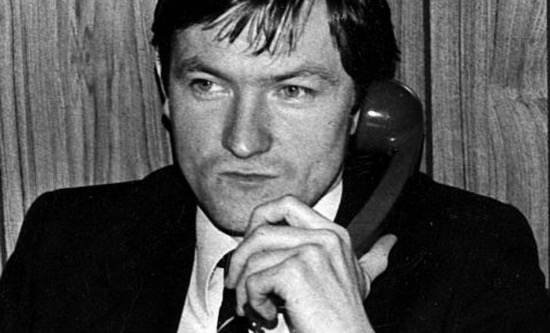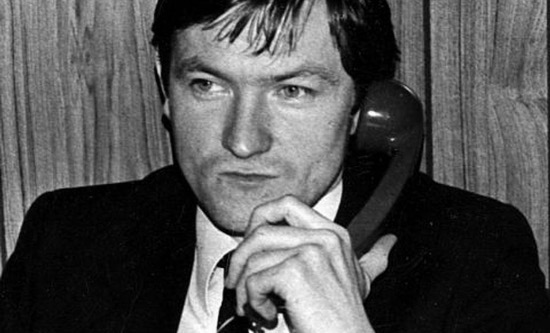
On 30 November 2020, the British government announced it would not hold a public inquiry into the murder of Pat Finucane. Finucane, a high profile civil and human rights solicitor in Belfast, was shot 14 times by members of the Ulster Defence Association (UDA) as he sat down to dinner with his family on 12 February 1989. Having made several promises to conduct an independent public inquiry, successive Labour and Tory governments have failed to do so. This is despite, or in fact because, significant evidence exists demonstrating that the UDA, along with other unionist paramilitary groups, was operating at the behest of the British government and in cooperation with British army and intelligence forces.
Finucane was known for taking on the cases of leading Republicans charged with offences relating to the Irish national war of liberation against the British imperialist occupation of the Six Counties. He was investigating killings carried out by British state agents and had just won an important legal victory against RUC men when he was assassinated. The RUC was Britain’s paramilitary police force in the North of Ireland.
Throughout the 1970s and 1980s unionist death squads pursued a policy of indiscriminate killings of the Irish nationalist population to create an environment of terror. However, Finucane’s work made him a particular target. Just four weeks before his assassination, Tory Home Office Minister Douglas Hogg alleged in the House of Commons that some Irish solicitors were ‘unduly sympathetic to the cause of the IRA.’ Hogg prepared the ground for Finucane’s murder. As we reported in March 1989, Finucane’s execution demonstrates ‘how neatly the British state can use ‘unofficial’ forces to carry out deeds – killing solicitors – that would be unacceptable to public opinion were they carried out by British troops’ (FRFI 85).
A 14-year police investigation into Finucane’s assassination was followed by a confession from William Stobie. Stobie, a former member of the UDA and then-serving RUC agent, admitted to supplying the weapon that was used to murder Finucane. Stobie said publicly that he would engage with any public inquiry into the killing of Finucane and name his police handlers. He was conveniently shot dead on 12 December 2001 before disclosing this information.
Ken Barrett, another RUC recruit, was identified as driving the getaway car. Pleading guilty so that no evidence would be presented in court, in 2004 Barrett was sentenced to life imprisonment for his involvement in the killing. He served just three years before being released under the terms of the Good Friday Agreement. Nobody has been held accountable for orchestrating Finucane’s death. Finucane’s family have repeated that they are interested not in who pulled the trigger, but in who pulled the strings.
British state agents were centrally involved in orchestrating the assassinations of Irish nationalists. British army agent Brian Nelson provided information leading to Finucane’s murder. Evidence places Nelson at the heart of directing terror attacks against Irish nationalists in collaboration with unionist gangs across the North of Ireland. He was also key in transporting hundreds of weapons from South Africa in 1987 to aid unionist armament. His visit to South Africa was cleared by government ministers. Nelson served less than six years in prison as part of a plea-deal which saw his most serious offences dropped.
In 2001 the Labour government tasked retired Canadian judge Peter Cory with privately examining the Finucane case and promised to hold a public inquiry if Cory recommended. Cory found a public inquiry was necessary, but the Labour government refused to comply, covering up Cory’s report and its findings for three years. Cory informed Geraldine Finucane, Pat’s wife, that his investigation had concluded that Margaret Thatcher, prime minister at the time of Pat Finucane’s killing, was aware of the actions of British state agents in Ireland.
Ten years after Cory’s investigation a public inquiry had still not been commissioned. In 2011 the Tory-Lib Dem coalition government appointed Desmond de Silva, ex-UN war crimes prosecutor, to review British state collaboration in the death of Finucane and other Irish nationalists. De Silva’s report paints a picture of a British government detached from the activities of the army with little idea what they were doing, concluding shockingly that ‘no overarching state conspiracy’ was involved in the murders. The war the British army was waging against the Irish liberation movement could not have been carried out without the support of the British government. De Silva’s report itself finds that the director general of MI5 raised directly with Thatcher in 1988 that British state agents in Ireland were acting without a legal framework.
Other significant conclusions by de Silva are: 85% of information used by unionist death squads to target people for murder originated from the British Army and RUC; agents working for MI5, RUC Special Branch and British Military Intelligence participated in criminality, presumably including murder; MI5 were spreading propaganda in Loyalist communities; there are 270 separate instances of British intelligence being supplied to unionist paramilitaries between January 1987 and September 1989 alone.
De Silva’s report has been used to bury any further investigation into Finucane’s assassination, but Finucane’s family continue to campaign for an independent public inquiry. Without an inquiry being independent and public the terms of reference remain unknown, evidence remains private, with no accountability as to how it is analysed. British police officers, army personnel and politicians directly responsible for supplying intelligence, weapons and orders resulting in the murder of Pat Finucane – and all other victims of British state murder in Ireland, from Bloody Sunday and McGurk’s Bar, to the Monaghan and Ballymurphy victims – remain free. Irish women and men continue to face imprisonment, torture and censorship at the hands of British imperialism.
Ria Aibhilin
Fight Racism! Fight Imperialism! 280 February/March 2021




